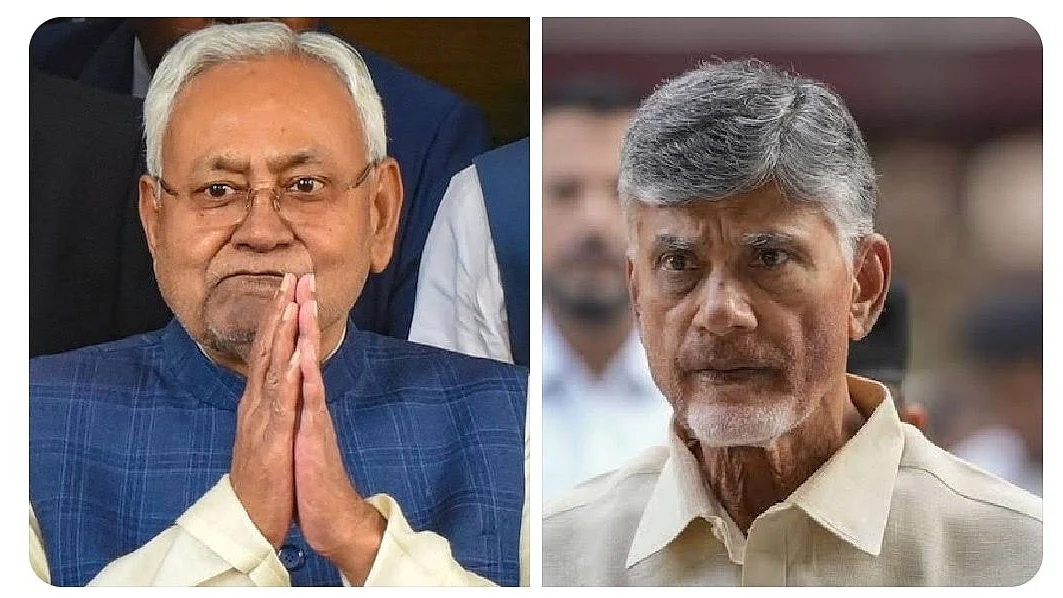Nation
Bill to remove PM, CM, other ministers a distraction from SIR and #VoteChori
Why introduce a Constitutional amendment bill on the penultimate day of the monsoon session? Why no consultation with the Opposition or states? Were Chandrababu Naidu and Nitish Kumar asked?

The proposed 130th Constitution Amendment bill to remove ministers, chief ministers and even a prime minister upon their detention/arrest for 30 days appears designed to divert the nation’s — and the Opposition’s — attention away from the Election Commission of India, the embarrassing press conference by the CEC and the ongoing Vote Adhikar Yatra in Bihar.
Otherwise, nothing really explains the introduction of such an important bill so suddenly and so late in the monsoon session of Parliament.
Published: undefined
The fact the bill was then hurriedly sent to a joint parliamentary committee for ‘scrutiny’, with the union home minister’s appeal that the committee submit its report on the first day of the next parliament session, shows the urgency — or lack of it.
However, that such a bill was drafted in complete secrecy and with no apparent or immediate justification defies conventional logic. How many chief ministers or ministers have been arrested in the last 11 years on criminal charges beyond Arvind Kejriwal of Delhi and Hemant Soren of Jharkhand? And neither of them were convicted, either. Soren, in fact, resigned before being taken to prison — much as Shah boasted he did when accused (and absconding) as a Gujarat state minister.
Besides the question of urgency, it is also puzzling that the government should bring a Constitutional amendment bill unlikely to find easy support across party lines when it does not have a two-thirds majority in either House of Parliament. Indeed, the BJP does not even have a simple majority in the Lok Sabha — and enjoys a majority at all because of the support extended by Chandrababu Naidu's Telugu Desam Party and Nitish Kumar's JD(U).
So, were these two NDA chief ministers at least consulted before introducing the bill?
Published: undefined
The union cabinet itself wasn’t taken into confidence, it would seem. It is true that not all Constitutional amendments require a two-thirds majority of the members present and voting or the sanction of half the state assemblies. However, it is inconceivable that such a far-reaching Bill should be allowed to be passed by voice vote or a simple majority in Parliament.
Yet, if the Lok Sabha Speaker and the chairman/deputy chairman of the Rajya Sabha decide to allow this, will the issue be escalated to the Supreme Court? And will the judiciary intervene? These are some of the questions looking for answers.
Published: undefined
However, the Lok Sabha Speaker allowed home minister Amit Shah to introduce the Bill around 3 p.m. on 20 August, Wednesday, and this was approved through voice vote. Following this, the House was adjourned till 5 p.m.
Then, the Lok Sabha eventually referred the Constitution (130th Amendment) Bill, 2025, the Government of Union Territories (Amendment) Bill, 2025, and the Jammu and Kashmir Reorganisation (Amendment) Bill, 2025 — all three — to a joint parliamentary panel of 31 members, who are yet to to be chosen by the Lok Sabha Speaker and Rajya Sabha chairman, for further scrutiny.
Published: undefined
Many MPs opposed the introduction of the bill, saying it was undemocratic, unconstitutional and designed to topple or at least weaken Opposition governments.
Published: undefined
AIMIM MP Asaduddin Owaisi described the bill as being against the principle of separation of powers, making the executive both judge and executioner. He added that a person would be removed as minister on a mere accusation.
Published: undefined
As per the Constitution, a minister can currently lose their post only in two ways — either when dropped from the cabinet by the prime minister or chief minister, or if the government loses the confidence of the Lok Sabha or Vidhan Sabha, as applicable. The current bill introduces a third snake to slide down.
Manish Tewari, Congress MP, also opposed the bill on the grounds that it gives the executive agencies free run to be judge, jury and executioner, undermines parliamentary democracy and allows the executive to assume the role of the legislature.
Per the new Bill, chief ministers and state ministers can be detained or arrested mostly by central agencies and even a mere detention can lead to their removal. The home minister, he said, had promised that Section 152 of the BNS would not be misused — but it has already been used against senior journalist Siddharth Vardarajan in Assam.
So, a bill meant to ‘punish’ 100 union ministers and chief ministers, and a few hundred more ministers in the states, was thought to be so urgent ‘morally’ that the country’s home minister moved it on the last but one day of the monsoon session of Parliament — making it one of the most ‘productive’ days of the session.
Yes, we’re still wondering why.
Published: undefined
Follow us on: Facebook, Twitter, Google News, Instagram
Join our official telegram channel (@nationalherald) and stay updated with the latest headlines
Published: undefined